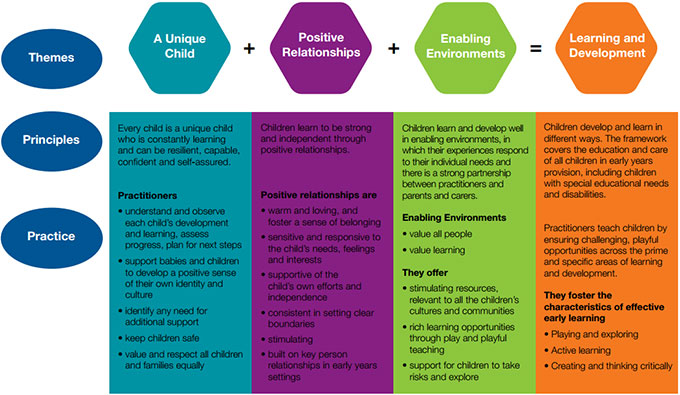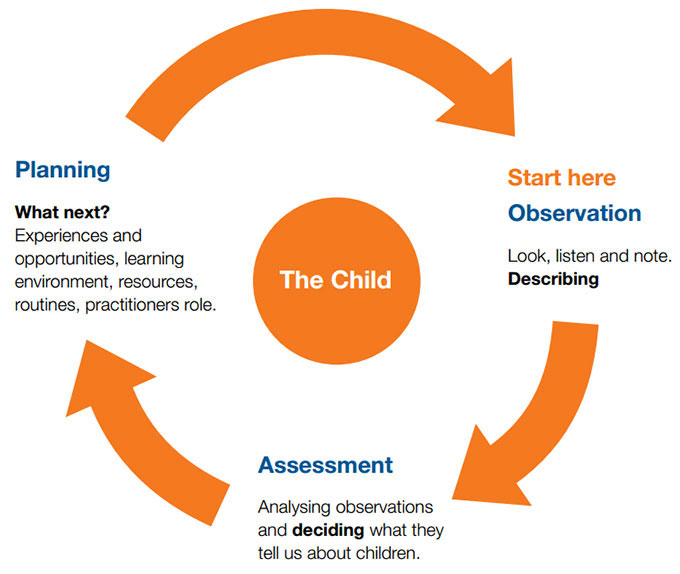During the early years, children undergo rapid development, and our dedicated staff of early years practitioners strive to facilitate optimal learning and ensure that children receive the best possible foundation for life.
Children have a right, spelled out in the United Nations Convention on the Rights of the Child, to provision which enables them to develop their personalities, talents and abilities irrespective of ethnicity, culture or religion, home language, family background, learning difficulties, disabilities or gender.
Vision
Our vision is to support each child’s learning and development.
Children are born ready, able and eager to learn. They actively reach out to interact with other people, and in the world around them. Development is not an automatic process, however. It depends on each unique child having opportunities to interact in positive relationships and enabling environments.
The Early Years Foundation Stage (EYFS) is the statutory framework that sets the standards that all Early Years providers must meet to ensure that children learn and develop well and are kept healthy and safe.
To support children’s learning and development, closely match what we provide to a child’s current needs. On-going formative assessment is at the heart of effective early years practice.
What we practice:
- Observe children as they act and interact in their play, everyday activities and planned activities, and learn from parents about what the child does at home (observation).
- Observing what children can do’ to help identify where the child may be in their own developmental pathway (assessment).
- Consider ways to support the child to strengthen and deepen their current learning and development, reflecting on guidance in columns headed ‘Positive Relationships’ and ‘Enabling Environments’ (planning). These columns contain some examples of what practitioners might do to support learning. Practitioners will develop many other approaches in response to the children with whom they work.
- Where appropriate, use the development statements to identify possible areas in which to challenge and extend the child’s current learning and development (planning).
- This way of teaching is particularly appropriate to support learning in early years settings.


